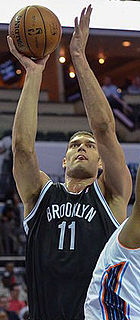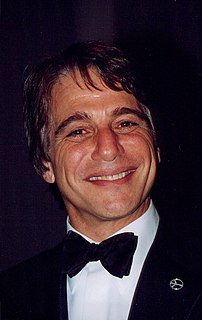A Quote by Christopher Priest
When I read comics, they were dense stories. When you put them down, there was a sense of having gotten a great deal from them.
Related Quotes
Great stories happen all around you every day. At the time they’re happening, you don’t think of them as stories. You probably don’t think about them at all. You experience them. You enjoy them. You learn from them. You’re inspired by them. They only become stories if someone is wise enough to share them. That’s when a story is born.
More and more, I tried to make comics in the way I like to read comics, and I found that when I read comics that are really densely packed with text, it may be rewarding when I finally do sit down and read it, but it never is going to be the first I'm going to read, and I never am fully excited to just sit down and read that comic.
Underground comics were produced by individuals - they were the auteur variety, rather than the production-line sort of comic book aimed at pleasing a vast general audience. Mainstream comics never appealed to me: they seemed sterile in their stylistic consistency, and were quickly consumed, the stories interesting only for so long as you were reading them.
We have an obligation to read aloud to our children. To read them things they enjoy. To read to them stories we are already tired of. To do the voices, to make it interesting, and not to stop reading to them just because they learn to read to themselves. Use reading-aloud time as bonding time, as time when no phones are being checked, when the distractions of the world are put aside.
We read novels because we need stories; we crave them; we can’t live without telling them and hearing them. Stories are how we make sense of our lives and of the world. When we’re distressed and go to therapy, our therapist’s job is to help us tell our story. Life doesn’t come with plots; it’s messy and chaotic; life is one damn, inexplicable thing after another. And we can’t have that. We insist on meaning. And so we tell stories so that our lives make sense.
I recently discovered the work of Giorgio Manganelli, who wrote a collection called 'Centuria,' which contains 100 stories, each of them about a page long. They're somewhat surreal and extremely dense, at once fierce and purifying, the equivalent of a shot of grappa. I find it helpful to read one before sitting down to write.
We like books that have a lot of dreck in them, matter which presents itself as not wholly relevant (or indeed, at all relevant) but which, carefully attended to, can supply a kind of "sense" of what is going on. This "sense" is not to be obtained by reading between the lines (for there is nothing there, in those white spaces) but by reading the lines themselves looking at them and so arriving at a feeling not of satisfaction exactly, that is too much to expect, but of having read them, of having "completed" them.
The great thing about getting married young like I did and having a child so young is that he gets to know all the relatives. He knew his great-grandmother, and we sat down together and tied down the stories of our uncles and aunts. They were quite the characters, and we tied them to about 50 recipes. It's like a memoir-cookbook.
Since I started as a comic person then became a musician to me it was interesting because I have this really great, interesting fanbase that's really smart and energetic and uh how could I steer them towards a medium that shaped who I was? You know, steer them toward comics. That was really the goal, to bring a lot of readers cuz they were reading a lot of comics but most of them hadn't been reading American comics, they'd be reading manga sitting on the floor of a Barnes and Noble.
I read some books, and I thought, 'This is better than sliced bread!' and a month later, I couldn't remember thinking about it. And I've read others that were kind of a slog, and I've put them down and come back six months later thinking, 'Wow, this is great.' So, you know, things change all the time.





































